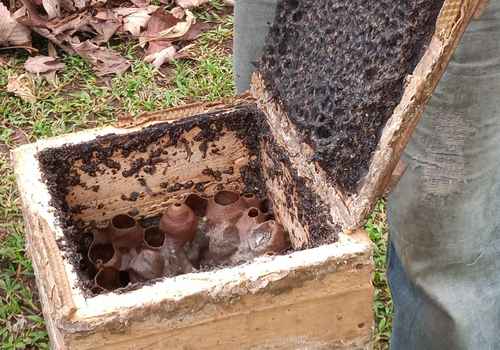Researchers have discovered potential health benefits from bacteria found in the digestive tracts of native bees. These microorganisms, isolated from melipona bee species in Veracruz, Mexico, have anti-inflammatory and anti-aging properties that could benefit both bees and humans. Additionally, these bacteria may help native bees combat mite infections and viral diseases.
Guiomar Melgar Lalanne, a specialist from the Biomedical Research Center at the Universidad Veracruzana, led the research project “Characterization of lactic bacteria isolated from the gastrointestinal tract of native bees.” The team’s focus was on the melipona bee variety in Veracruz. Melgar Lalanne emphasized the importance of native bees for environmental conservation and their role in pollinating cloud forests and tropical ecosystems. However, pesticide use and the introduction of Africanized bee species have endangered native bee populations.
To address this issue, the research team collaborated with honey producers in Teocelo, Veracruz, to study beneficial microorganisms present in the digestive tracts of native bee species. During their research, they identified two key microorganisms: Weissella sp and Fructobacillus sp. These bacteria possess anti-inflammatory and anti-aging properties and could help combat mite infections and viral diseases in bees. The researchers are now studying encapsulation techniques to explore their effectiveness against pesticides like glyphosate, which has been linked to declines in native bee populations.
The implications of this research are significant for environmental balance and the conservation of native bee populations. By finding ways to support and increase their presence, researchers hope to contribute to preservation efforts for forests, agricultural fields, and ultimately human health. Previous studies suggest that certain bacteria may digest pesticides and reduce harm to bees; thus microbiota research offers new insights into sustainable agriculture and environmental conservation.
Native bees play a crucial role in ecological systems throughout Mexico, including Yucatán and Veracruz states where various species of meliponas exist. As researchers continue to explore ways to protect these essential pollinators, their efforts may provide new insights into sustainable agriculture practices that prioritize biodiversity conservation.
In conclusion, researchers have discovered potential health benefits from bacteria found within the digestive tracts of native Mexican honeybees (melipona). These microorganisms possess anti-inflammatory properties that could benefit both humans as well as mitigate mite infection or viral disease risks for these vital pollinators – which is crucial for ecological systems worldwide.
Melgar Lalanne highlighted how important it is to preserve these insects due to their ecological significance as well as their role in pollinating cloud forests or tropical ecosystems which might lead us towards better understanding how we can conserve them while ensuring sustainable agriculture practices that prioritize biodiversity protection through effective use of natural resources without causing harm or imbalance within these ecosystems.











+ There are no comments
Add yours